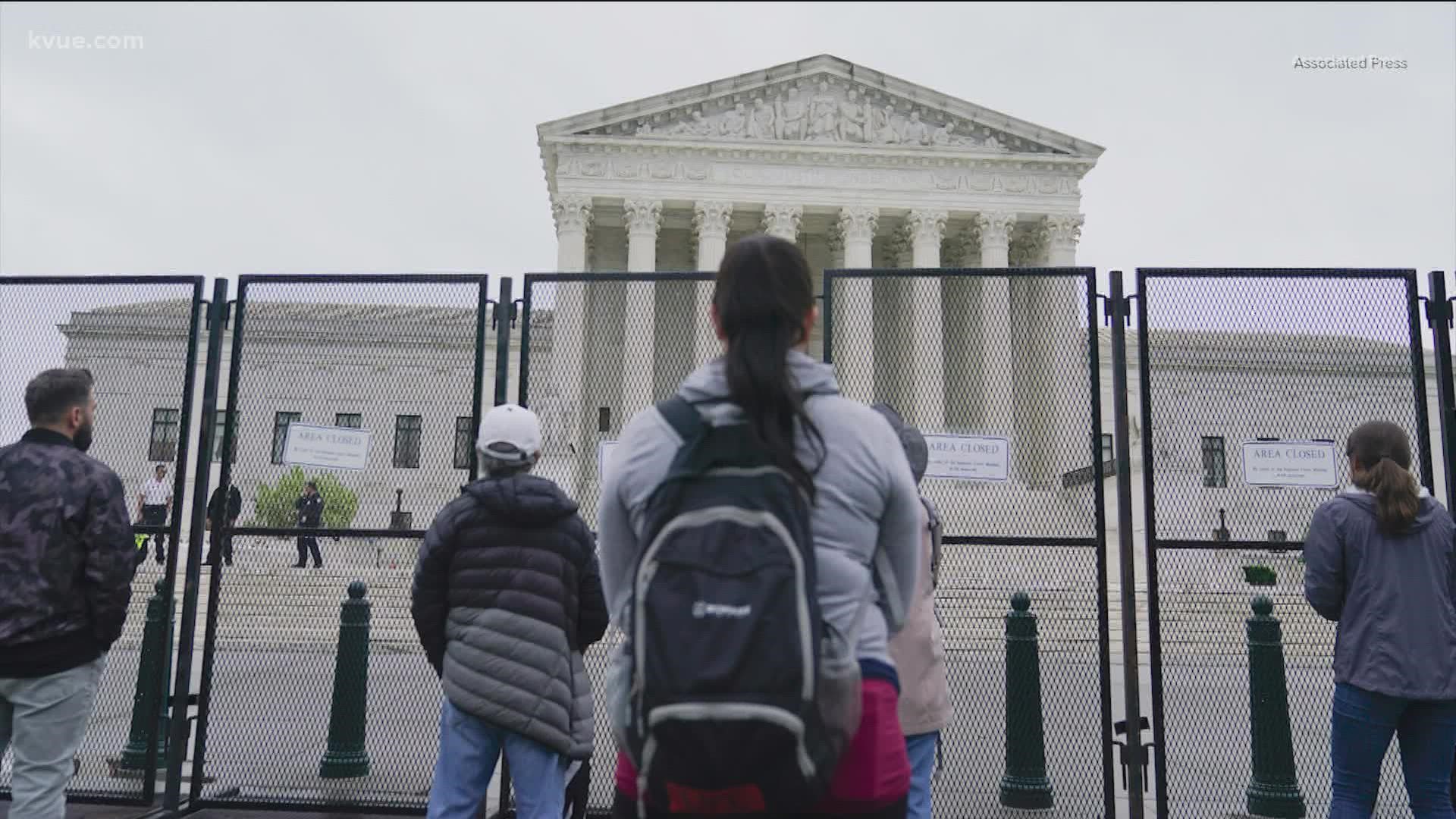AUSTIN, Texas — Throughout the week, protesters marched in cities across the country on both sides of the abortion rights issue.
Following the leak of the draft opinion effectively overturneing Roe v. Wade, law experts say if the draft opinion is finalized as it was written in February, there could be major consequences to rights beyond abortion.
"It seems like the right to contraception is on the chopping block, but so are many of the rights protecting LGBTQ civil rights, like marriage equality and Obergefell v. Hodges or Lawrence v. Texas, which say states can't prohibit consensual sexual relationships between adults," Leah Litman, a law professor at the University of Michigan, said. "The Constitution doesn't specifically mention marriage equality. It doesn't specifically mention sexual intimacy. And there aren't, you know, state constitutional provisions from the 1800s that mention the same."
In the leaked draft opinion, Associate Justice Samuel Alito wrote language referencing what is "deeply rooted in our history and tradition." Litman and Professor Elizabeth Sepper from the University of Texas took up the issue with that phrasing.
"One issue is that you can think about abortion, not as about a right to abortion, but rather as about a right to privacy, and that right does seem to be deeply rooted in our history and tradition," Sepper, an expert on reproductive rights, said. "But instead, Justice Alito isolates the abortion right and says that during a period when women could not vote and looking at sources from slavery was still the law of the land, that that reflects what's deeply rooted in our history and tradition."
"The opinion then goes on to say, you know, there is literally zero basis in history for abortion, but that's just a wildly overstated claim, given that the opinion has no evidence to back up the existence of criminal penalties before quickening – the point at which you could detect movement of the fetus, a common law – and it goes out of its way to launch all of these critiques at Roe versus Wade that would seemingly apply to other foundational precedents as well," Litman, who previously clerked for former Justice Anthony Kennedy, said.
Even though the opinion was drafted in February, Sepper added the opinion was missing a major consideration.
"What is clearly missing from Justice Alito's opinion is any sense of women in 2022," Sepper said. "We don't exist in the opinion outside of a paragraph on the fact that we can vote. Otherwise, we're really in the 1800s for the bulk of his opinion, and that's quite uncommon. So Justice Kennedy authored an anti-abortion opinion that upheld a federal ban on a certain kind of abortion procedure. In there, he invented a woman who was very regretful about abortion, but he told the story of women and their reaction to abortion. It may have been inaccurate, but he was at least thinking about how women might experience abortion or experience the lack of access or regulation of abortion. Justice Alito does not do that."
PEOPLE ARE ALSO READING:

